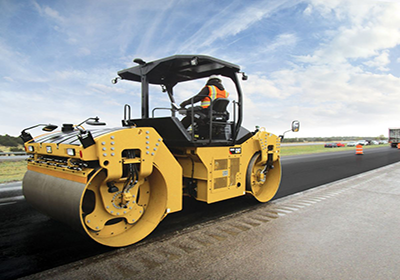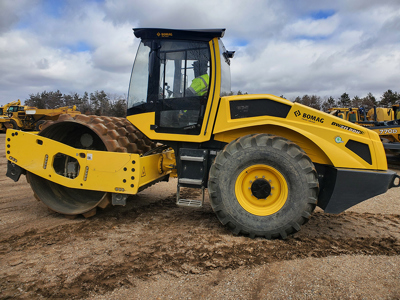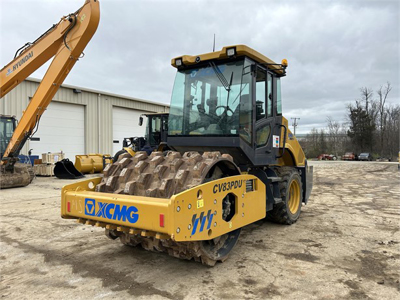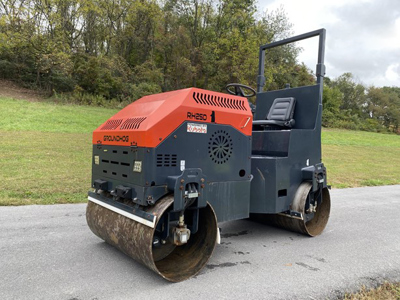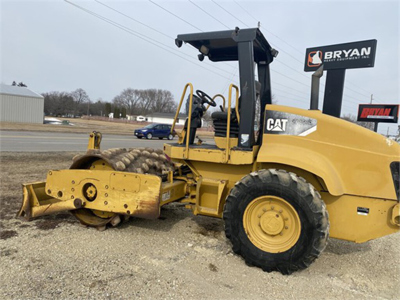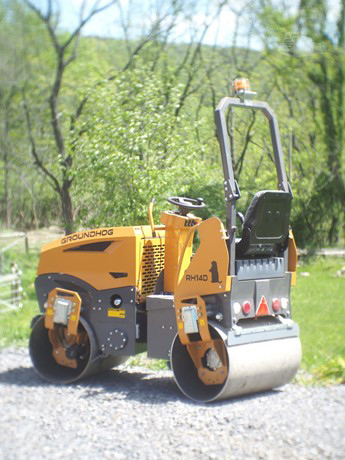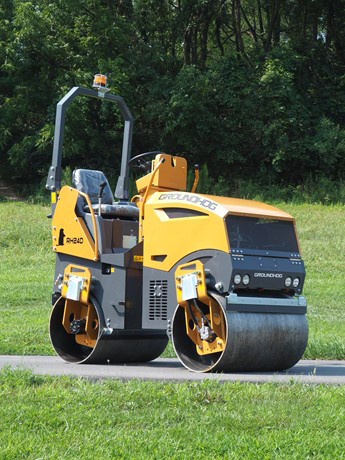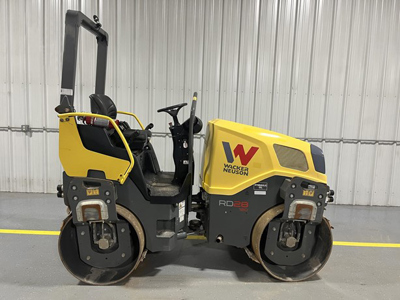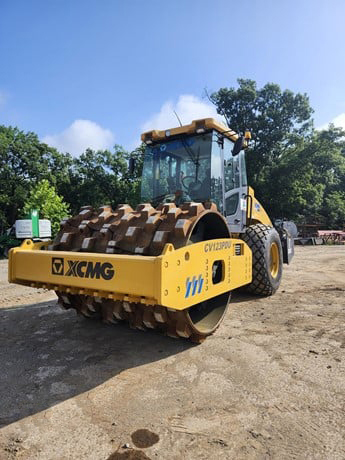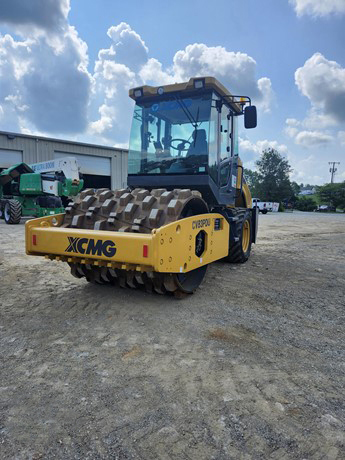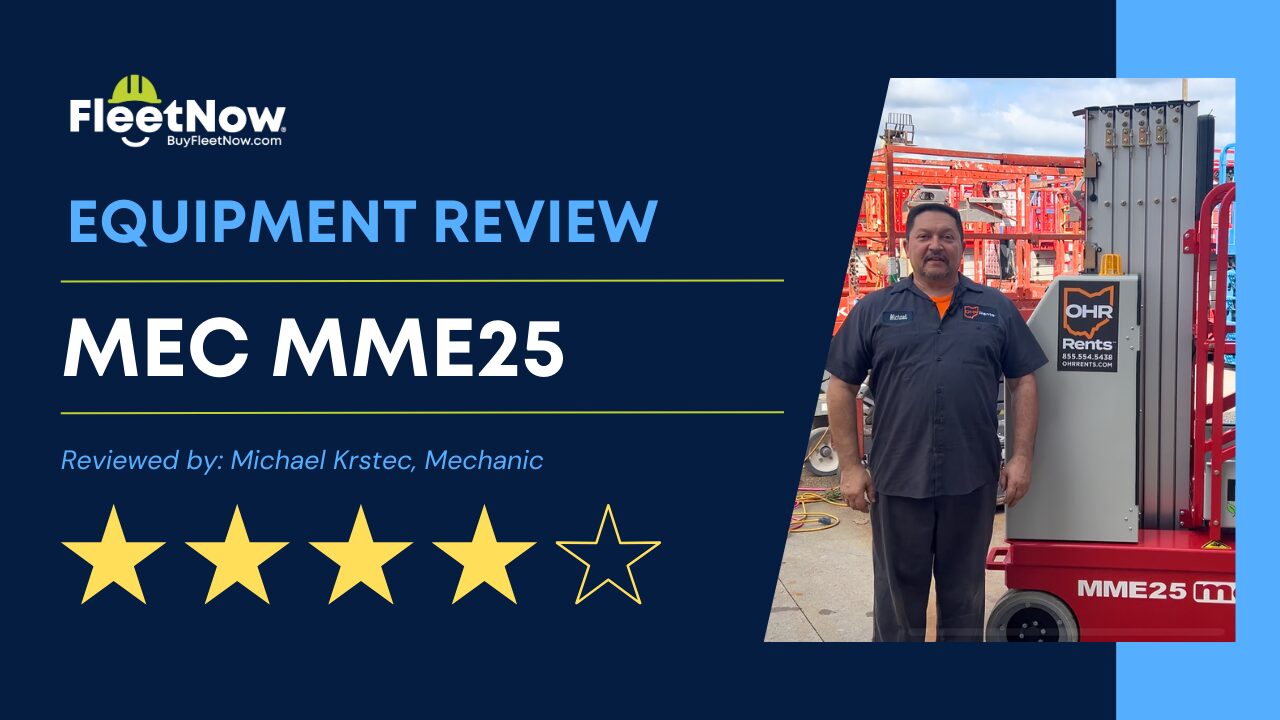Are There Different Types of Roller Compactors?
There are three basic types of roller, the single drum, tandem, and pneumatic tired roller. The differences arise due to the way in which the vehicle moves across the ground. Each machine has different uses on the jobsite. The single drum roller has a large, heavy drum across the entire front of the machine. It has its engine and cab at the rear of the machine, and moves across the ground by means of tires. The weight of the drum provides compaction. Single drum rollers cannot move across some terrain because of the heavy, unpowered, weight at the front. Single drum rollers are smaller than the other types of rollers, and so if workspace is constricted, the single drum roller is more maneuverable. The tandem roller provides two drums, one at the front, and one of the back of the machine. The drums are powered, and move the machine across the ground, as well as providing compaction of the soil they move across. Tandem drum rollers perform best on flat surfaces or gentle grades. Tandem drum rollers are often used on paved areas to smooth asphalt. The pneumatic tired roller has two rows of tires, at the front and rear. The tires cover about 75% to 80% of the surface in front and behind the machine. The pneumatic tired roller is often used for finishing work on paving projects.
Shop for Roller Compactors for Sale on BuyFleetNow.com
Wacker Roller Compactor For Sale | Volvo Roller Compactor For Sale | CAT Roller Compactor For Sale | Hamm Roller Compactor For Sale | Dynapac Roller Compactor For Sale | XCMG Roller Compactor For Sale | BOMAG Roller Compactor For Sale
What Should I Look for When Shopping for a Roller Compactor for Sale?
When shopping for a roller compactor for sale, it’s important to consider several key factors to ensure you select the right equipment for your construction or compaction needs. First, identify the specific type of compactor that is suitable for your application, whether it’s soil compaction, asphalt paving, or compacting granular materials. Check the compaction capacity and operating weight of the roller to ensure it can handle the intended workload and achieve the desired compaction density efficiently. Evaluate the drum width and diameter of the roller to ensure it can cover the required area effectively while considering any job site constraints.
Additionally, review the compaction performance specifications, especially for vibratory rollers, looking at factors such as vibration frequency and amplitude to ensure optimal compaction results. Consider the power source of the compactor—whether it’s a diesel engine, gasoline engine, or electric motor—based on fuel availability and environmental considerations. Look for operator comfort features like ergonomic controls and vibration-dampening seats, as well as safety features such as ROPS (Roll-Over Protective Structure) and safety interlocks to protect operators during operation.
Evaluate the maintenance requirements and availability of service and spare parts for the roller compactor to minimize downtime and ensure long-term reliability. Choose a reputable brand with a proven track record for quality and reliability in the construction equipment industry, and review the warranty coverage and after-sales support offered by the manufacturer or dealer. Finally, establish a budget and compare prices of different models based on the features and specifications that align with your project requirements. Consulting with industry professionals or equipment specialists can also provide valuable insights to help you make the best choice for your compaction equipment needs.
What Is a Roller Compactor Used For?
A roller compactor is used for compacting and densifying materials in construction and industrial applications. In construction, it is commonly used to compact soil, gravel, asphalt, and other materials to create a solid and level foundation for roads, buildings, and other structures. In industrial settings, roller compactors are used in manufacturing processes to compact powders and granules into solid sheets or briquettes, improving material handling and product consistency. This equipment helps ensure stability, durability, and uniformity in various projects and products.
How Much Does It Cost to Ship a Roller Compactor?
It would cost about $2 per mile to ship a roller, like a Wacker RTKXSC3, in 2023.
How Much Does a Roller Compactor for Sale Cost?
he cost of roller compactors for sale can vary widely depending on factors such as the type of compactor, size, brand, and condition. Smaller vibratory plate compactors suitable for landscaping or residential paving projects typically range from $1,000 to $5,000 for new units and $500 to $3,000 for used ones. Walk-behind rollers designed for asphalt and soil compaction can range from $5,000 to $15,000 for new models and $2,000 to $8,000 for used units. Larger ride-on rollers (tandem rollers) used for larger paving and compaction jobs have a broader price range, from $15,000 to $80,000 or more for new units and $5,000 to $50,000 for used ones. Specialized rollers like pneumatic tire rollers or sheepsfoot rollers, as well as high-capacity rollers for heavy-duty compaction, can range from $20,000 to over $300,000 depending on size and specifications. It’s important to consider not only the upfront cost but also factors such as maintenance needs and availability of parts when evaluating roller compactors for purchase.
How Long Does a Roller Compactor Last?
Unlike other sorts of construction machinery, there is no set life expectancy for a roller. Some well-maintained rollers have worked construction sites for thirty years or more. Regular maintenance and careful operation can extend the life of a roller over many years.

What Are Popular Brands of Roller Compactors for Sale?
There are several reputable brands of roller compactors known for their quality and performance in the construction equipment industry:
Wacker Neuson: Wacker Neuson offers a range of compact and efficient roller compactors suitable for various compaction applications. Their rollers are known for durability and ease of operation, making them popular choices for contractors and rental fleets.
Volvo: Volvo produces high-quality rollers that are recognized for their reliability and advanced technology. Their range includes both soil and asphalt rollers designed to deliver superior compaction results with efficient fuel consumption and operator comfort.
Caterpillar (CAT): CAT is a leading manufacturer of heavy equipment, including roller compactors. CAT rollers are known for their robust construction, advanced features, and excellent performance in demanding conditions, making them a preferred choice for large-scale construction projects.
BOMAG: BOMAG is renowned for its innovative and versatile roller compactors. BOMAG rollers are known for their precision compaction, durability, and operator-friendly designs, offering a wide range of models suitable for various compaction tasks.
Hamm: Hamm rollers are known for their exceptional compaction performance and ergonomic design. Hamm offers a comprehensive lineup of rollers, including vibratory compactors and tandem rollers, designed for efficiency and productivity on construction sites.
XCMG: XCMG is a leading Chinese manufacturer of construction machinery, including roller compactors. XCMG rollers are known for their reliability, affordability, and advanced features, catering to a wide range of construction applications.
Dynapac: Dynapac rollers are highly regarded for their quality engineering and innovative design. Dynapac offers a variety of rollers, from compact walk-behind models to heavy-duty tandem rollers, known for their efficiency and versatility.
What Is the Best Type of Roller for Soil Compaction Versus Asphalt Compaction?
The choice of the best roller type for soil compaction versus asphalt compaction depends on the specific characteristics and requirements of each material. For soil compaction, especially cohesive or fine-grained soils like clay or silt, sheepsfoot rollers or padfoot rollers are highly effective. Sheepsfoot rollers feature cylindrical drums with protruding lugs or “feet” that penetrate and compact the soil efficiently, whereas padfoot rollers use a similar design with a padfoot drum. Vibratory rollers are also commonly used for soil compaction, leveraging vibration to enhance compaction in granular soils and improve overall density.
In contrast, for asphalt compaction where achieving a smooth and uniform surface is critical, smooth drum rollers are typically used. These rollers are designed to compact asphalt to achieve a smooth finish and uniform density across the surface. Vibratory rollers are also effective for asphalt compaction, providing better compaction and density especially for thicker asphalt layers. Pneumatic tire rollers, equipped with rubber tires instead of a steel drum, are another option for asphalt compaction. They are gentler on the asphalt surface and can help achieve the desired density without causing damage.
When selecting the best roller type, it’s important to consider the specific characteristics of the material being compacted, project requirements including target density and surface smoothness, and site conditions such as accessibility and constraints. Consulting with experienced professionals or equipment specialists can provide valuable insights to ensure the appropriate roller type is chosen for the specific compaction application.
Video: Tips for Operating a CAT Vibratory Drum Compactor
Recent Equipment News
MEC MME25 Review: Specs, Features & Industry Perspective
MEC MME25 Review: Specs, Features & Industry [...]
Construction Equipment Trends 2025: Inside Q1–Q2 Demand & What It Means for You
Table of Contents Top 10 Categories Q1 vs [...]
FleetNow Announces Elijah Dollarhide as 2025 Construct Your Future Scholarship Winner
FleetNow Announces Elijah Dollarhide as Construct Your Future Scholarship [...]

